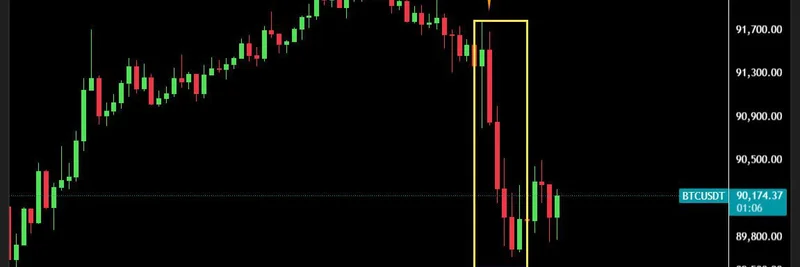Hey there, meme token enthusiasts and blockchain buffs! If you’ve been scrolling through X lately, you might have stumbled upon a thought-provoking post by Mosi (@VannaCharmer) that’s got everyone talking. The post dives into Robinhood’s fascinating evolution—from its early days of promising to "democratize finance" to its current vibe of "you can make it trading." Paired with a slick image of Vlad Tenev, Robinhood’s CEO, looking like he just stepped out of a high-stakes movie, it’s clear something big is brewing in the fintech world.
The Shift in Robinhood’s Mission
Back in 2013, Robinhood burst onto the scene with a mission to open up financial markets to everyone. No more exclusive Wall Street clubs—suddenly, anyone with a smartphone could trade stocks and, later, crypto. It was a game-changer, especially for younger investors who felt left out of traditional finance. But fast forward to 2025, and the narrative’s shifted. The latest buzz suggests Robinhood is leaning hard into an "aspirational positioning," encouraging users to see trading as a path to riches—think hypergambling with a side of financial thrill.
This pivot hasn’t gone unnoticed. Mosi’s post highlights how Robinhood’s moving away from its populist roots toward a bolder, riskier stance. The mention of "financial nihilism" adds an intriguing layer—could this mean people are treating trading like a high-stakes game where the rules don’t matter? It’s a topic that’s sparking debates across the crypto and meme token communities, especially as platforms like Robinhood start to blur the lines between investing and gambling.
Who’s Vlad Tenev, and Why Does He Matter?
If you’re scratching your head wondering who Vlad Tenev is, you’re not alone—several X users asked the same thing! He’s the co-founder and CEO of Robinhood, the mastermind behind its growth from a startup to a household name. The image accompanying Mosi’s post shows him in a sharp, striped suit, exuding confidence outside a luxurious building. It’s a visual that screams "new era," and it ties into the idea that Robinhood’s leadership is embracing a bolder, more glamorous identity.
Tenev’s vision has always been about shaking up finance, but his recent moves—like pushing trading features that feel more like a casino than a stock exchange—have raised eyebrows. Some X users, like Wired Champ, even point to the infamous GameStop trading halt in 2021 as a turning point, where Robinhood restricted sells to protect the market, leaving many investors frustrated. This memory fuels the narrative that Robinhood’s evolution might be less about democracy and more about control.
Hypergambling: The New Norm?
So, what’s this "hypergambling" trend all about? Imagine trading apps designed to keep you hooked, much like a slot machine. Quick wins, flashy interfaces, and the thrill of risk-taking—Robinhood’s latest updates seem to lean into this. The post suggests this shift reflects a broader cultural move toward "financial nihilism," where the traditional value of steady investing takes a backseat to chasing big, unpredictable gains. For meme token fans, this might sound familiar—after all, tokens like Dogecoin or Shiba Inu thrive on similar hype-driven momentum.
X users like MD RAZU chime in, suggesting that when the system feels rigged, hypergambling becomes a rebellious outlet. It’s a wild thought: are we seeing a new generation of investors who’d rather roll the dice than play it safe? This ties into the meme token world too, where community-driven hype often drives prices more than fundamentals.
What This Means for Meme Tokens and Blockchain
For those of us at Meme Insider, this evolution is a goldmine of insight. Robinhood’s pivot could signal a growing overlap between traditional finance and the wild west of meme tokens. As the platform embraces riskier trading behaviors, it might open doors for meme-based cryptocurrencies to gain mainstream traction. Imagine $DOGE or $PEPE getting a bigger spotlight on Robinhood—could this be the push they need?
But it’s not all rosy. The shift also raises questions about regulation and investor protection. If hypergambling becomes the norm, will regulators step in? And how will this affect the blockchain practitioners building the next big meme token? Staying informed is key, and that’s where our knowledge base comes in—helping you navigate these trends with the latest updates.
The X Community Weighs In
The thread under Mosi’s post is a treasure trove of reactions. Some, like ZEUS - Parody, poke fun with lines like “good luck, king,” while others, like Apoorv, remind us of Robinhood’s past controversies with a screenshot of the GameStop saga. It’s a mix of humor, skepticism, and curiosity—perfect fuel for a deeper dive into what’s next for trading apps.
Final Thoughts
Robinhood’s journey from a finance democratizer to a hypergambling pioneer is a story worth watching. Led by Vlad Tenev, the platform’s new direction could reshape how we think about investing, especially in the meme token and crypto space. Whether this is a brilliant reinvention or a risky gamble (pun intended), one thing’s clear: the financial world is getting more exciting—and chaotic—by the day.
Stick with Meme Insider for more updates on how these trends impact your favorite tokens and the blockchain ecosystem. Got thoughts on Robinhood’s evolution? Drop them in the comments—we’d love to hear from you!




